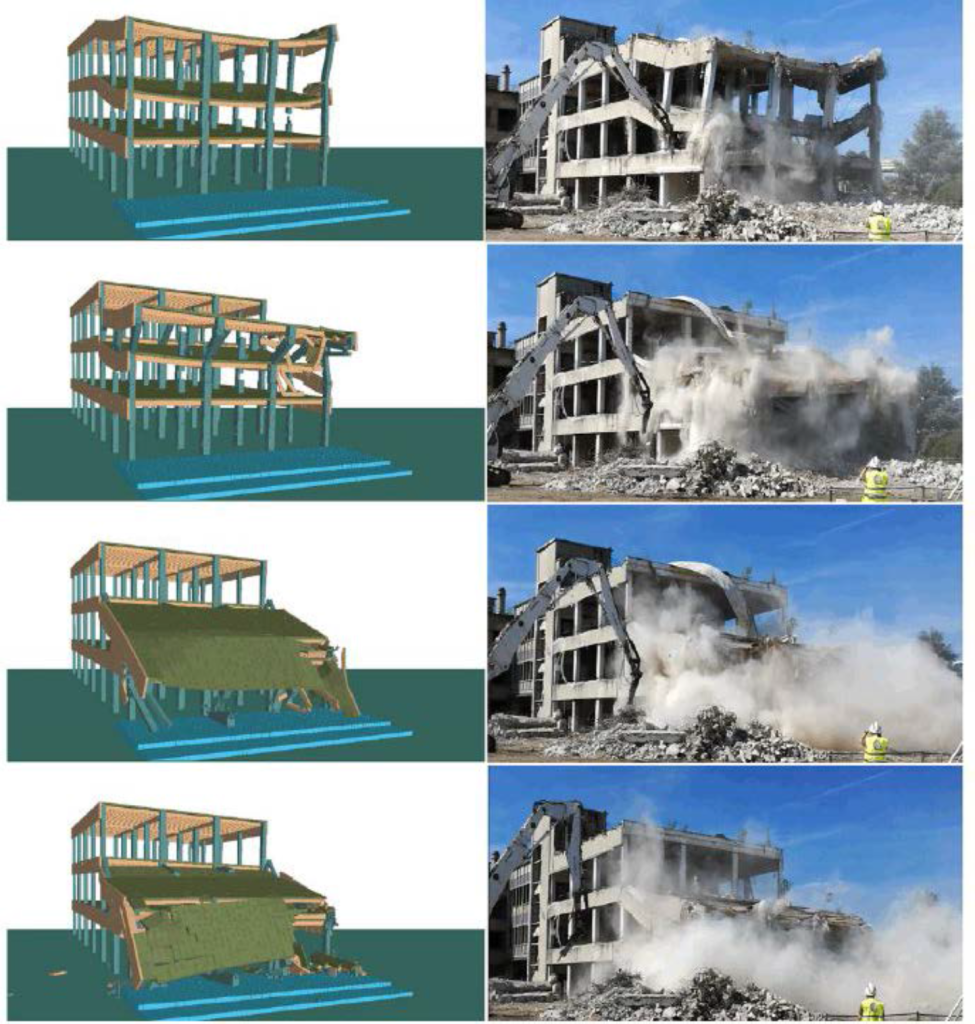December 01, 2024
Mizzou Engineer Sarah Orton is analyzing patterns in falling debris to halt building collapses and prevent fatalities.

When disaster strikes, people need to be certain of the safety of their buildings and structures. Natural disasters including earthquakes and strong winds, as well as issues with deterioration and poor design, are some of the causes of structural collapses, which often lead to falling debris.
Sarah Orton, professor of civil and environmental engineering, is an expert in disproportional collapse – or a collapse that occurs when a minor structural failure triggers a chain reaction, causing damage far beyond the initial cause. She’s using her experience to tackle the next problem in the chain of events: when a collapse happens, can we stop falling debris from making it worse?
Funded by a $555,000 National Science Foundation grant, Orton and collaborators are studying patterns in falling debris to mitigate the risk of fatal collapses.
“While the potential local failure is nearly impossible to eliminate, the progression of collapse by the impact of falling structural members can be limited,” Orton said. “If we can understand how falling debris leads to further collapse, then there may be techniques to halt collapse in buildings and prevent fatalities.”
During this project, the team will use experimental studies and modeling methods to improve collapse prediction. The results of testing will be used to develop new analytical tools that can analyze falling debris for prediction of collapse progression.
“We really need to understand the forces generated by falling debris to determine how to resist them,” Orton, who is also the department’s director of undergraduate studies, said.
In addition to predicting building collapses, the team’s work may also lead to improvements in construction. This new modeling tool will empower engineers to design safer buildings. The work will also lead to improved prediction of building performance.
“We want to be able to know that our homes, workplaces and cities are safe,” Orton said. “Our research will strongly improve our foresight and engineers’ ability to make that promise to people around the globe.”
Be part of a civil engineering department making a difference in the world. Learn more about civil and environmental engineering at Mizzou!